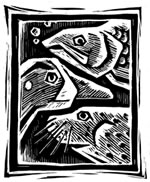- Home
- Restoration Projects
- Project Search
- Long Term Monitoring Program - Evaluating Chronic Exposure of Harlequin Ducks and Sea Otters to Lingering EVO in Western PWS 12120114-Q
Project Information
Title: Long Term Monitoring Program - Evaluating Chronic Exposure of Harlequin Ducks and Sea Otters to Lingering EVO in Western PWS 12120114-Q
Project Year and Number: 2012: 12120114-Q
Other Fiscal Years and Numbers for this Project: 2014: 14120114-Q, 2013: 13120114-Q
Principal Investigator (PI): Brenda Ballachey
Managing Agency: USGS
Assisting Personnel: Jim Bodkin, Liz Bowen, Dan Esler, Keith Miles
Project Website: https://gulfwatchalaska.org/monitoring/completed-projects/lingering-oil/harlequin-ducks-and-sea-otters/
Research Location: Prince William Sound
Restoration Category: Monitoring, Research
Injured Resources Addressed: Harlequin Ducks, Sea Otters
Abstract:This project is a component of the integrated Long-term Monitoring of Marine Conditions and Injured Resources and Services submitted by McCammon et al. in spring 2011. Sea otter and sea duck populations in PWS were injured as a result of the Exxon Valdez oil spill, with evidence for both immediate acute mortality and longer term injury from chronic exposure to oil spilled in 1989. For both species, it appears that full recovery is not yet complete. Prior EVOSTC projects have examined continuing exposure to lingering oil as a factor constraining recovery, using biomarker assays (the cytochrome P4501A biomarker, CYP1A, to evaluate oil exposure in harlequins, and gene expression assays to evaluate exposure and health of sea otters). Harlequin ducks have continued to show elevation of CYP1A in oiled areas through 2009, suggesting exposure is still a concern; harlequin populations were resampled in spring 2011 and results of CYP1A assays on those samples are pending. For sea otters, recent studies have shown that abundance in the vicinity of northern Knight Island has not yet returned to pre-spill levels, and that otters are foraging in areas where lingering oil persists in sediments. Most recently, gene expression assays have been developed, using an array of genes to specifically quantify oil exposure and health status of sea otters. We propose to resample harlequin and sea otter populations in western PWS in 2012 to assess biomarker levels, as a continued effort to measure exposure of these nearshore residents to lingering oil and monitor the status of their recovery as injured species, and as indicators of recovery of the overall nearshore ecosystem.
Proposal: View (69 KB)
Reports:
Annual Report FY12: View (157 KB)
Final Report: See Project 14120114-Q
Publications from this Project: None Available
